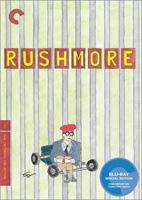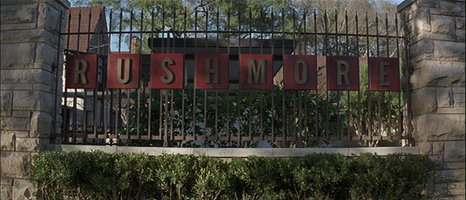
[I considered redacting the spoilers in the conversation below, but on reflection, I don’t think there’s anything very precious about the surprises in this movie. Consider yourself spoiler warned: the following conversation gives away absolutely everything that happens. See the movie first, why don’t you. Why not.]
[Also, a more basic warning: This is by far by far the longest of these conversations. For no good reason.]
[Seriously. I considered posting it in two parts but decided that would just be a needless formality: pacing yourself appropriately is ultimately up to you, the reader. Ergonomic microbreaks are encouraged.]
ADAM I should say first: I did enjoy it. But it had almost no Disney Animation DNA left in it, which was a little wistful, coming at the end of this project, or at least the trailing edge of this project. It had a lot of Pixar, it had a lot of Marvel, it had a lot of Blade Runner. And I got a faint but persistent note of Scooby-Doo for much of it.
BROOM For sure.
ADAM Almost every influence but Disney, actually.
BROOM There was Disney DNA. The protagonist has no parents, so that he can go on a free journey of self-discovery, and work out his emotional issues. And — I guess it’s more out of the Pixar playbook, but still — the scene where he sees the video of his brother, and realizes that he’s on the wrong path, that hate is not the way… That’s not really an old-school Disney formula beat, but it’s a medium- to new-school Disney beat, right?
ADAM What are you thinking of?
BROOM You know: the Lion King goes into exile but then realizes he wants to live his destiny and be who he truly is.
ADAM It was a lot sadder than most Disney movies, in its literal events.
BETH Well, Bambi…
BROOM And The Lion King more recently.
ADAM That’s true.
BROOM We all talked about how Lilo and Stitch was a wonderful updating of some of those emotions. This had some similarities with that.
ADAM And I guess there’s a note of Brother Bear here too.
BETH I thought it was great. I really, really enjoyed it, and didn’t really have many problems with it. I mean, I’m interested to hear what your problems are…
ADAM Well, I don’t want to overemphasize my problems, because I really liked it. It was just a very conventional plot that was sort of dressed up with a lot of…
BETH … stuff.
ADAM But the stuff was all very satisfying.
BETH I really enjoyed that it was a fully-realized world, that it took place in this San Francisco/Tokyo hybrid. It was the future, but not too far in the future. I guess maybe it was just a parallel universe.
ADAM It was the San Francisco of Starfleet Academy.
BROOM I would say it took place in a comic book. But at the same time it also sort of stood outside comic books, which I think is part of the way that they imagined they could adapt a Marvel property into something for general audiences.
ADAM Was this really a Marvel property?
BROOM I believe the story of this movie is that after they bought Marvel five years ago, they looked through the catalog to find something they could use, and this is some obscure comic book they hit on — which apparently isn’t really like this. I think it has some form of Baymax-the-big-robot and Hiro-the-kid, and that’s about it. So they said, “We can use this and make it into our own thing.” And I think having the characters keep joking about comic book tropes was part of repackaging it for non-Comic-Con audiences.
BETH That was something I was thinking about — and I guess this goes back to it not being like a Disney movie: it seemed like something that was being made by the animators for themselves more than for kids.
ADAM Because it’s about amazing nerds?
BETH Yeah, and the superhero fantasy, and cool tech. Yes, amazing nerds.
BROOM I didn’t feel it as sincere as that. To me it seemed a little calculated, in a lot of different directions. Maybe that’s just because my mind was running faster than was appropriate.
ADAM My word was “triangulated.” You know: it’s an American movie that’s intentionally appealing to Asian audiences. It’s an action movie that you can take kids to… and has strong female protagonists. It felt marketed. And think of the tie-ins! The video-game tie-ins, and the Disney ride tie-ins. No wonder the entire executive staff of Disney Animation was credited! But, again: even as I perceived that, I took authentic pleasure in the pan-Asian setting and the videogame thrills and chills. And in all the doodads, which were very well executed.
BROOM I felt strange for a lot of it. I mean, obviously I didn’t really feel all that strange, but the more overtly comic-book-y it got, the more disoriented I got. Like, that the bad guy wore this scary mask…
ADAM “It’s old man Callaghan!”
BROOM It was strange combination of elements, tonally, from a bunch of different worlds. Like you say: on the one hand “it was old man Callaghan,” but at the same time…
ADAM There was a Daphne, and a Velma, and a Shaggy. And the black guy was like a Fred.
BROOM Fred was always kind of a problematic character, because he would seem to be the hero, but he isn’t.
ADAM Sorry to interrupt with that.
BROOM No, the Scooby-Doo connection is absolutely there; I thought about it too. And all of those characters in this movie made me a little uncomfortable.
BETH Okay, yeah. If I had to have a problem with it, it was with them. See, I can have problems with it, but in the moment I was very much enjoying it!
ADAM That’s totally cool!
BROOM Yeah, I’m not naming this stuff to say “let’s all agree to dock the movie a few points for these things.” They’re just responses that I happened to have. Such as: the Jewish-American Princess character somehow made me squirm.
ADAM The who? You mean the Latina character?
BROOM She was Latina?
BETH The tall one?
ADAM She was voiced by “Genesis Rodriguez.” And she kept saying “Hiro” [with palatal H and tapped R].
BROOM I thought that was her being absurdly over-sensitive about his Japanese name.
ADAM No, I think that was just her Latina accent.
BETH Oh, I took it the same way BROOM did.
BROOM That was the only word she said that way! I thought it was just her idea of how culturally enlightened she was.
BETH I thought of her as Phoebe from Friends. Just as sort of this goofy ditzy person.
ADAM It’s true that her weapon was a heart-shaped purse that produced colorful balls.
BROOM It seemed so clear to me that she was Jewish. I don’t know where I got that from, since neither of you guys got it.
BETH It didn’t even cross my mind.
BROOM I guess my discomfort came from the combination of her and the “sarcastic Asian” woman, where there was no layering to the sarcasm to indicate a real personality underneath.
ADAM You mean the Sonic the Hedgehog girl?
BROOM Right. That always bothers me, when someone’s defensive front is presented as what makes them awesome, and it’s never acknowledged that it’s just a front. That happens in nerd-culture stuff all the time.
ADAM She reminded me of the main character from the last one, but just on the surface. What was that girl’s name?
BROOM From Frozen?
ADAM No — what was that movie that we just saw? The “Everything is Awesome” one.
BROOM That’s not a Disney movie. That’s The Lego Movie.
ADAM Oh, so it’s just the last movie I saw in a theater! Sorry! Nevermind, everyone!
BROOM Right, “Wyldstyle.” But that’s exactly what I’m talking about, because there they eventually break it down and admit, “well, her name’s not really Wyldstyle, because that would be absurd.”
ADAM It’s Fat Becky.
BROOM It’s Lucy or something.
ADAM That’s from a scene in Pitch Perfect where it turns out that Fat Amy’s real name is actually Fat Patricia. It’s funny when you peel off the mask and there’s an equally ridiculous mask underneath it.
BROOM So… I’m not actually comparing it to Chicken Little, but it made that same kind of claim: “hey, we’re in the fun world of nerds!” And I don’t buy that as a complete description of any world. So I was sort of hoping it was eventually going to get broken down, and it didn’t. Whereas the actual Scooby-Doo kids certainly aren’t “awesome nerds.” They don’t joke with each other self-consciously.
ADAM They don’t live in a social world, they live in…
BROOM … a van.
ADAM … a world out of space and time. They don’t have relations to any characters other than the five of them. I mean, Fred would never speak to Velma in real life.
BROOM In this movie “Fred” is the name of the Shaggy role. But that he’s the rich kid makes him into a John Hughes kind of character.
ADAM That was a funny touch, that he basically lives in the Spreckels mansion.
BETH And they get to practice on the butler.
BROOM I don’t know what the Spreckels mansion is.
ADAM It’s the fanciest mansion in San Francisco. In real life Danielle Steele lives there.
BROOM It was during that sequence, when they decide to be superheroes and then they’re practicing at his mansion, that I specifically had the thought: “This movie is weird. This movie is not one thing. It’s a bunch of things.”
ADAM I felt it in three very distinct segments. And I liked the middle segment best. There was the beginning segment, which was like…
BETH “I have the awesomest brother in the world.”
ADAM It reminded me of… was it the beginning of Treasure Planet? “We’re alone in our room and we’re bored.” Dreaming of things and bein’ little misfits. And then the middle segment, from the explosion up to the superhero room, was the most satisfying. Because far and away, Betamax — what’s his name?
BETH Baymax.
ADAM Far and away, Baymax was the strongest element in the movie. And then the end was just… Remember when Lilo and Stitch sort of goes off the rails and becomes an action movie? It felt like that.
BROOM Yeah, exactly, every movie has to have that happen so it can end.
ADAM But the middle was super-lovely and awesome.
BROOM Since they kept saying “The bad guy must be Krei!” I thought, “Well, I guess that means it’s Callaghan. But why is it Callaghan? What is that supposed to mean to us?” And I’m still not sure.
ADAM I wasn’t thinking that far ahead. I guess you should know that if a character’s voiced by James Cromwell, he’s gonna be the bad guy.
MS. BAREBURGER So we’re doing last call; do you guys want to get in anything else?
BETH No, we’re okay.
BROOM I think we’re gonna be good.
MS. BAREBURGER Okay.
BETH Thank you.
ADAM Thank you. … … … (You’re gonna be famous!)
BROOM You think she’s Hispanic?
ADAM No. There’s nothing about the character that actually looked Hispanic. Until I noticed that she was pronouncing things that way.
BROOM Just “Hiro.”
ADAM But there were no other Hispanic characters in the movie! So she had to be the Hispanic one.
BROOM Well, that’s why I was surprised they made her Jewish.
ADAM Anyway, I thought that Baymax was the soul of the movie. Obviously.
BROOM He was also a marshmallow robot who didn’t really have any perspective. At the end, when they go into Star Trek: The Motion Picture space, into V’Ger…
ADAM I thought of it as What Dreams May Come space.
BROOM Yeah, the void, the lost socks dimension.
ADAM Nebulae.
BROOM When he has to leave Baymax there — spoiler alert! — I thought “This is Beth’s perfect movie: saying goodbye to a marshmallow.” If there’s anything that could make her cry…
BETH It did.
BROOM … it would be a movie where someone carries around a giant pillow the whole time, and at the end it’s like, “I have to leave you here, pillow!” Which I guess is the plot of Castaway with Tom Hanks.
BETH Well, it did make me cry, so, you’re right.
BROOM But it was exactly because Baymax represented nothing other than Hiro’s own emotions that he carried around with him. Or, like, the concept of a hug.
BETH That’s right. But I knew that the disk was going to be in his glove.
BROOM But how satisfying was that? At the end — spoiler spoiler alert — when he makes a new Baymax because he has the disk, weren’t you like, “Hooray, Baymax lives!… or… well, new Baymax lives… or… well … I don’t know, does this actually make up for Baymax being gone?”
BETH When he said, “Hi, Hiro,” then, yeah, it was like, “Baymax lives!” Because he remembered.
ADAM Do you find it consoling when Dumbledore appears in the portrait after he’s killed?
BETH Yes.
ADAM It’s like that.
BROOM My real answer about Dumbledore is that it feels a little like: “So his death meant… what?” It’s exactly like how Obi-Wan Kenobi keeps coming back in the other two movies. When I would rewatch the first one, when he died, it was just in quotes. It was just an event in the story like any other. Because I know he’s going to get to keep talking whenever he wants. He can walk around like anyone else. He’s blue. He’s fine.
ADAM I was very surprised that Hiro’s brother didn’t contrive some way to come back. I totally thought that was going to happen.
BETH I thought that might happen.
BROOM I did consider that the bad guy might turn out to be the brother. But I thought, “that would be pretty rough.”
BETH When they were about to unmask him, I thought, “It’s the brother! Oh my god!” But no, it wasn’t.
BROOM It’s Spencer Tracy.
ADAM I thought it was Krei the whole time. I don’t know what’s wrong with me. I don’t think to think ahead, in movies.
BROOM Krei was like Crispin Glover.
BETH And Callaghan was like Sam Waterston.
MR. BAREBURGER Okay, California with beef, medium?
BROOM California for me. Yeah, thank you.
MR. BAREBURGER The Mediterranean with lamb, medium.
ADAM Thank you.
MR. BAREBURGER Sweet fries.
BETH Yeah, just in the middle. Thank you.
ADAM Can I get some—
MR. BAREBURGER This is curry ketchup, special sauce, and ranch.
ADAM Can I get some mustard too?
[MR. BAREBURGER goes to get it]
BROOM “Sir, if you insist. If that’s what you need, to make you happy. We’ll do it.”
ADAM All right, so: the animation was just extraordinary. Just gorgeous.
BROOM What did you think about their skin?
ADAM It was the right side of the uncanny valley. They didn’t try to make it too porous. Like, pore-y.
[he is given mustard]
ADAM Thanks.
BROOM They did something with it that was new. It definitely had some kind of blushing translucency that was a new technique. And I at first had kind of an icked-out response. Not exactly that it fell in the CGI uncanny valley: it looked to me like real fake skin. It looked like those silicone, you know…
ADAM RealDolls?
BROOM Yeah, or like, “the robot that’s got a hand!” where the hand looks genuinely fleshy, and that’s creepy. It looked like that kind of skin.
ADAM But what beautiful 3D!
BROOM Aren’t you glad we sprang for the 3D?
BETH I am glad.
BROOM And… RPX! [ed: “Regal Premium Experience.”]
ADAM My favorite 3D moment was when you’re hovering outside the window in the rain, going into the memorial service, and the bay window just looks slightly bulbous. It just looked perfect. I had never thought about how you could use animation to do all the crazy shit that you can’t do in a real movie. Why even bother having motion-capture? Just animate it, and some day it’ll be good enough that you won’t even notice. That’s the feeling I got for parts of this movie.
BROOM When they were landing on the secret island, for a second I thought, “oh, they’re going to have them land on a live-action island!” And then of course realized, “no, that’s just something that looks particularly photorealistic in their animation system.”
BETH Yeah, there were a few times when I forgot that I was watching animation. And that, I think, is why when they were on top of the Golden Gate Bridge, I really felt worried for them! Because it was that realistic.
BROOM I had the thought at one point that the outdoors in this movie felt more outdoors than most animation. Maybe that’s a credit to the people who did the sky, or the weather, or the lighting, or whatever. It felt like we were really outside, which is rare for CGI.
ADAM So what do you think about the design concept for San Fransokyo being: San Francisco with paper lanterns? And, like, Chinese dragon heads on the top of the Transamerica building and the Golden Gate Bridge.
BROOM Please take this as innocent, and not as cranky: what is the point of these kinds of mash-ups? Are they supposed to mean something political, or about the cultural overlap that actually exists between those cities? Or is it just, like, “what if two things were the same thing?”
ADAM ‘Cause it’s cool, man.
BETH I think it’s that. “Wouldn’t it be cool and weird if these cities combined?”
BROOM But some combinations would seem all cyberpunk-y, and some would just seem stupid. If I was like, you know, “It takes place in Paris/St. Louis,” you’d say, “What’s the point of that?”
BETH The point is someone thought of it! Someone had a dream.
ADAM It adds to the futuristic post-racial funkiness of the movie. But also, it’s cool. But also, it’s cross-cultural marketing.
BROOM The basic idea goes back to Blade Runner and other stuff; it’s been in sci-fi for a long time. And I think a lot of the time it’s supposed to represent…
ADAM Dystopia.
BROOM … some kind of political futurist speculation. Like in Clockwork Orange where they all speak bits of Russian. That’s a Cold War idea: “you have no idea what kind of havoc is going to be wreaked on your sense of cultural lines.” So it seems to come out of some idea like that, but it’s really just arbitrary stuff. I guess this is the same question as “what’s the point of steampunk?” And the point is undoubtedly that it gratifies some subconscious desire, but I’m not sure I have a theory about what that desire is.
ADAM I really liked the music.
BROOM I thought the score was pretty good for one of these.
ADAM When they were about to play some really obnoxious song… what was it?
BROOM “Eye of the Tiger.”
ADAM And I thought “Oh man,” and then it turned out just to be a gag. “Thank god!” Because I was gonna be really annoyed by that.
BETH I thought it was funny.
BROOM To me, that moment was one of their hedges, where they’re ostensibly saying “Ha ha, we’re all sick of that kind of movie.” But of course this is exactly one of those movies. They’re just not using that particular cue.
ADAM Well, I appreciated that they didn’t use that cue.
BROOM So I guess you guys didn’t have any sort of underlying feeling that the movie was pretty weird?
BETH I feel like I might later reflect on it and have completely different feelings, but in the moment…
BROOM I just mean in the moment.
MS. BAREBURGER I’m just gonna drop this ’cause we’re starting to close out but take your time with it, no rush.
BETH Okay. Thank you.
ADAM I don’t know. I mean, it was a weird mash-up, but it was pleasurable, and it felt tonally consistent. And the kids in the audience, as represented by that Russian woman behind us, or whatever she was, seemed to like it.
BETH Polish, I think.
BROOM I think that was Russian they were speaking.
ADAM Whatever it was, she was the most childlike person in the audience. She really liked when Baymax deflated.
BROOM The sequence where he gets drunk because his battery is running out was pretty funny.
ADAM “We jumped out a window! Shhhhh!” Maya Rudolph didn’t have much to do.
BROOM Yeah, great role.
ADAM She got to talk about those chicken wings.
BROOM So I thought the one girl was Jewish, you can take it or leave it — but really I was uncomfortable with all of the racial-typed nerds. I’m a little embarrassed for the big black guy to be a coward — or, you know, a nervous Nellie — because “look, we’re inverting stereotypes!” is just as embarrassing as sticking to them.
BETH I think millenials and beyond are so post-racial as to not even think of stereotypes as being inverted with these characters.
ADAM Yeah, they don’t even see race!
BETH That’s what I’m actually saying, though!
BROOM Yeah, BETH is actually saying it, and at the same time you’re accustomed to making fun of it. And that’s kind of how I feel: they really don’t have that stuff in their heads at all? Aren’t they in fact intensely proud of their rejection of it?
ADAM Let’s ask Eddie. He’s a millenial or beyond.
BETH Okay, yeah! I really genuinely believe it.
BROOM Eddie, his nephew?
BETH No no no, I’m not saying that.
ADAM I’m just being silly. I’ll stop undermining your point.
BETH I’m saying I genuinely believe that younger people are not attuned to that stuff, and not because they’re less sophisticated, but because they’re growing up in a place where it’s just not as prevalent. It’s just not part of their experience the way it has been for us. Maybe that’s naive of me, but…
BROOM When you were a kid, didn’t you feel incredibly savvy about all of the aspirational pandering stuff in kid culture? Like, the fact that The Care Bears existed — didn’t you get that it was not because the world had actually become an emotionally accepting world, but because someone had this sanctimonious sale they were trying to pitch to you?
ADAM No. I did not.
BETH Well I hated, hated, hated The Care Bears. But it wasn’t because of that. It was just because they were the most boring possible thing.
ADAM Well, we can keep talking about this subject if you want to…
BROOM What subject is this?
ADAM Race and stereotyping in the movie.
BROOM Oh yeah.
ADAM … but I did want to know what you thought about science in the movie. Because it made being a nerd seem super-cool, but then it also had a lot of that… what was that Sandra Bullock movie? The Net? It’s what I think of as “science mysticism,” where there’s not actual science; you just throw around a lot of words.
BROOM I thought here they’d actually been very careful about the words, to the point that the dialogue seemed forced. “Is that a lithium-ion battery?” “Yes it is.”
ADAM Okay, yes, they had a lot of technical consultants, but the effect was still that sort of blizzard of… You know, any movie where the way you interact with a computer interface is grabbing images in front of you…
BETH Grab and pull.
ADAM I was getting all annoyed that it was like, “Tech is amazing, and it’s easy, and it’s all about being brilliant!” But then thankfully they had the scene at the end where Tadashi has to try 87 times to get Betamax to work.
BROOM Baymax.
ADAM Which of course is what actual science is more like. So I was grateful for that. I did on the one hand appreciate the message “Thinking is cool! Use those big brains of yours!” But on the other hand, “thinking” just meant, like, videogames.
BROOM I respected their desire not to let it be just movie-ese tech talk, like, “Mr. President, the…” Well. You know. Any line that starts with “Mr. President.” But at first it was a little overkilled, and then they kind of let the whole issue go. After that initial scene where he visits the lab there isn’t too much science talk.
ADAM I guess I should have figured out that they were introducing all the sidekicks, but it didn’t occur to me.
BETH Yeah, I felt like maybe the beginning was a little rushed.
BROOM Or, rather, too slow.
ADAM Well, they had a lot of sidekicks to introduce, so it took a while.
BROOM I can imagine them in story meetings: “Is it really necessary to introduce them all before the plot gets in motion?” “Yes, obviously it is, or else it won’t feel like assembling a team of friends, later.” “So how are we going to introduce them all without giving away what’s coming? What role should they play in the opening section?” “They’ll play the role of enticing him into a more ambitious lifestyle.” But do you really need four lively characters to serve that function? No, you don’t. So it didn’t really work, I thought.
ADAM There had to be six of them, because of the title. God, if only someone had enticed me into a more ambitious lifestyle when I was at an impressionable age.
BROOM I felt that way watching this movie. “Why didn’t someone come to me and say ‘Too bad you don’t want to be here at the awesome place that’s perfect for you’?”
BETH “Age doesn’t matter.”
BROOM Yeah, he’s going to college at 14, and his friends are all 20.
ADAM That was like the Good Will Hunting segment. But yeah, who wouldn’t have liked that? Maybe I wouldn’t be just, like, a burnout corporate lawyer, if someone had come and told me to, you know…
BROOM Yeah, and I wouldn’t be just a bot fighter. I had more to say about that sequence but I forget what.
ADAM It felt slow.
BETH I was confused too.
ADAM I didn’t understand it was a superhero movie, so I didn’t know what I was being set up for.
BETH Me neither. I hadn’t read anything about the movie. So I was like, “Okay, so… he’s going to school. And these guys want him to go to school… Okay…” Thoughts about the brother character?
ADAM He was super-hot.
BETH Yeah, and they knew it. They were dressing him to be, like, “the perfect dude.”
ADAM He was the hottest Asian dude in a Disney movie since the Mulan guy.
BROOM Surely half-Asian, right?
ADAM Right, because Aunt Cass was not Asian.
BROOM Wasn’t there a picture of the parents on the wall?
ADAM In, like, Samurai outfits.
BROOM Yeah, totally traditional dress. Maybe that’s a wedding photo… but at least one of the brothers was in it! It seemed to me like it was showing us that both the parents were deeply traditional Asians. There was no half-anything about it. So I didn’t understand what I was looking at, there.
ADAM But the brother was super-hot.
BROOM See, I didn’t know that. This is one of those cases where I didn’t know it.
ADAM And sensitive.
BETH Yeah. Really, the perfect guy.
BROOM That’s what you said about the guy from last time!
BETH That’s right! But this guy was even more perfect.
ADAM Yeah, I wouldn’t want to date them both at the same time. Maybe marry this one, and that one… Well, but the other one was Jonathan Groff. Hard choices, Disney. And I would have been okay dating the big black dude too. Even though he’s a coward. It’s okay.
BETH I couldn’t go for him.
BROOM ADAM, he’s such a nerd.
BETH Just because he was muscular?
ADAM Yeah.
BROOM You’re sure that he had muscles?
ADAM He appeared to. Yes.
BROOM He could have just had a big ribcage.
MS. BAREBURGER How are you guys doin’ over here?
ADAM Great. We’ll pay up.
MS. BAREBURGER Thanks so much you guys.
BETH Thank you.
BROOM Thank you.
ADAM Thank you.
MS. BAREBURGER Are you guys…?
BETH Wait a second, I’m gonna put a card in too. One sec. You can split it.
ADAM Thank you.
MS. BAREBURGER Thanks.
ADAM Luckily Hiro wasn’t that hot, ’cause he was only 14.
BETH Luckily!
BROOM Luckily for all of us.
BETH He wasn’t hot at all! He was cute like a little kid.
BROOM Why don’t they put the perfect girl in? They never do. They’re more sensitive about that.
BETH They think that they do.
ADAM You didn’t think Elsa was the perfect girl?
BROOM They always have some kind of personality that comes first. They can’t just be, like, “a wonderful person,” like Tadashi.
ADAM Tadashi was too good for this world. I should have seen it coming.
BETH I thought that the one princess… the one who wanted to run her own business?…
BROOM Oh, with the frog?
ADAM Princess Tiana. She was pretty great.
BETH … I thought that she was basically a really good person.
BROOM But her personality was that she “didn’t get it,” until deep into the movie.
BETH Okay, but she was a real person.
BROOM She was an admirable person.
MS. BAREBURGER Thanks so much you guys.
BROOM Thank you.
BETH Thank you.
BROOM That’s different from just being a simple presence, where you can imagine, “ooh, I would gladly date her.” Like with these guys you’re talking about.
ADAM You know, the more I think about this, the more it did feel like Brother Bear. It’s an odd strain in Disney-dom. And for that to be the sole surviving remnant of Disney DNA is weird.
BROOM The only real reason for the parents to have been absent in this story is because if there had been parents, they would have been grieving for the brother as well, and they needed to make Hiro be alone in his grief.
ADAM Yeah, Aunt Cass didn’t seem to give a shit.
BETH She looked really sad at the wake.
ADAM At the funeral, yeah, well, that’s good of her. Aunt Cass seemed to be a little bit medicated.
BETH Or just sad and lonely. A lonely lady running a restaurant by herself, who has a cat.
ADAM I thought it was a missed opportunity that they never actually showed us Mrs. Whatsername who was dressed ridiculously inappropriately for an 80-year-old.
BETH Yeah, they should have, just for one shot.
ADAM All right, so what did you think of Feast?
BROOM Also very strange.
BETH Yeah, Feast was really weird!
ADAM I didn’t like Feast at all.
BETH Feast is not going to be nominated for an Oscar!
ADAM No, it probably is. They always are.
BROOM I liked how it looked. And I would never bet against a Disney movie being nominated for an Oscar.
ADAM What a creepy message!
BROOM What was the message? I thought it was just about a visual style.
ADAM The message was “Junk food is…”
BETH Okay, so it was, like…
ADAM “Lovable girl gives us greens, but we love her anyway because she makes our master happy.”
BROOM “But what if I don’t like greens?”
ADAM Yeah, it was weird. Really, the only raison d’etre of that short was the dog being cute.
BROOM I think it was that they had created a different style of rendering, this sort of edgeless smooth world.
ADAM It was attractive, but it creeped me out on a number of levels. Like, the weird gender stereotyping. It was weird. Ugh.
BROOM It was offering us a little sensual world. Food is a natural part of that. That’s the kind of thing these images are good for. A lot of times with these things, I feel like we’re just going through…
MS. BAREBURGER Thanks guys.
BETH Thank you.
ADAM It’s just, like, “we have some images that we want to give you, and we have to hang them on a plot, and so the plot is gonna be the most awful, stupid…” I mean, what was the last one that we saw? About the umbrellas in love?
BETH Oh, that’s right. Yeah, umbrellas.
BROOM That wasn’t on Frozen, though, because that had Get a Horse. Where was that umbrellas thing?
ADAM It must have been two ago.
BROOM But we didn’t see that one in the theater. Did we see the umbrellas in the package of Oscar-nominated shorts? [ed.: Yes, as a non-nominated extra. It was originally released with Monsters University]
ADAM Anyway, that was awful too. What was two Disney movies ago, before Frozen?
BROOM It was… you know, Break-Em-Up Harry. What was that called?
ADAM Oh, the Candyland one.
BROOM Beat-Em-Up Barry.
ADAM Wreck-It Ralph. I think it might have been the short before Wreck-It Ralph. [ed: that would be Paperman]
BROOM Anyway, here’s what I was going to say about plotting: I feel like when I’m watching them the way that a kid does, or as I would have as a kid — i.e. the best way — I’m watching very intuitively, I’m not thinking analytically, and a lot of these kinds of questions, like, “what’s the message this is sending?” — those questions don’t even occur to me. And I think that they’re often written in that same mindset, by people who operate that way all the time. They’re people who are very sensitive to whether things look right, and whether they feel right on kind of an irrational level, and so you end up getting these very deep cultural-subconscious ideas coming out in them. I think it’s so obvious that the message and the story and the meaning of Feast are messed up that it’s clear they weren’t thinking about it that way. I think it was just worked out like: “then they’ll have to be in love… and then something will have to come between them…” I don’t know how exactly to put it, but in a very intuited, unconceptual way. The same way I as a kid understood every cartoon as, like: “Sure, now the bad guy falls in the chasm, ’cause bad guys fall in chasms.” You never “thought it out.” I don’t think that Feast had been “thought out.”
ADAM Yeah, I agree.
BROOM I don’t know if that means it does in fact work on some magical deep level, and I’m just uncomfortable with it.
ADAM No.
BETH No. I don’t think kids liked that movie. I mean, maybe they liked part of it, I don’t know.
BROOM It looked nice and you got to look at food. That was the point of it, I think.
ADAM BETH, How do you feel about your gender being symbolized by a sprig of parsley?
BETH I don’t feel like it was.
BROOM It’s not presented as a bad thing, really. You spend the whole first half of it hoping for something healthy to show up.
ADAM I thought something horrible was going to happen to the dog after eating all that horrible food.
BROOM Exactly. So when you see the sprig of parsley, you think, “Thank god he found this woman.” Right. And then later, when he goes back to his old ways…
ADAM It turns out he’s a slob in a bathrobe, in fairness.
BROOM … and the dog is eating Eggo waffles, you’re meant to think, “this is clearly no good.” So I don’t think it was negative stereotyping.
ADAM Yeah, but it was just gross. It creeped me out. Okay. Should we read the New York Times Review?
BROOM All right.
BETH But what you were just saying… about how when you’re watching a movie and you’re not thinking about it analytically — that was how I watched Big Hero 6. And so having come from that place, it’s difficult to… That’s why I feel like it has been difficult for me in this conversation to get myself to a place of thinking about it analytically, because I really did enjoy it on the level that it wanted me to.
ADAM I want to be clear: I very much enjoyed it, and I don’t want to nick it unnecessarily. Because it was a pleasure to see in the theater.
BROOM I haven’t said the words “I really enjoyed it” yet, but I basically did. I had a good time, and I never disengaged completely. But I did feel genuine feelings of “what’s going on?”, which I think were unforced, kid-like feelings. However I also have the psychological sophistication to understand that I may have had those genuine problematic feelings because my mind is just involuntarily accustomed to working too hard, and were I more relaxed generally I would have soaked it all up.
ADAM How did Callaghan get the headband?
BROOM You’re joking, right?
ADAM No, I’m not.
BROOM He didn’t have the headband.
BETH He built the mask.
ADAM No, I understand, but when he caused the explosion, how did he get the shield to form? Did he take the headband? Did we miss that?
BROOM Oh, I see.
BETH Also, this bothered me: when they were leaving afterward and saying, “hey, let’s go get dinner,” I thought, “you guys, you left all of your stuff in there, and that guy wanted it! What are you thinking?” I don’t think Hiro took the headband with him.
BROOM All right, here are some other things I have to say: When he did his demonstration, I already thought it was scary.
BETH Oh, yeah, me too. It was clearly, like, “oh, this is obviously going to be used for evil.”
ADAM “This is a disaster.”
BROOM “I hope no one ever builds this.” He could have gotten into school any way he wanted. It didn’t have to be this. There are a million things you can eat that aren’t cheese. The next thing is: he apparently made all that in two days of fast-motion, so afterward, he could have just made another army of microbots!
BETH No, it was like a month.
BROOM He slept in the chair, and then woke up the next day and finished it.
BETH No no no! That whole stop-motion sequence is a month where people come in and go out, there’s a party…
ADAM Yeah, didn’t he write down how to do it?
BROOM He himself did it! So he could have gone home to where he still has his 3D printer, or whatever…
ADAM I see, and made a counter-army.
BROOM Which is, like, the greatest invention of all time and the most dangerous, and he could have pursued it himself. Also, he could have built his own headband!
ADAM “Use that big brain of yours! Think of another angle.”
BETH I really liked that fake stop-motion sequence. I thought it was very nice.
BROOM Next thing: I believe this is the first Disney movie, and one of the only movies in my entire life, that had no title at the beginning. No titles of any kind until the very end.
ADAM What are you gonna do?
BROOM Good point! I guess I’ll use the title from the end at the top of the page. I have to.
BETH When the Minions ad started, I thought, “Wait, is this it? Is this the movie?” Because I really didn’t know.
BROOM That’s a sequel to Despicable Me and Despicable Me 2.
BETH Yeah, well, I’m just that out of it.
BROOM I haven’t seen them, but I know that, because I’m not out of it. What other previews did we see?
ADAM We saw some awful previews. We saw Hillsong: Live Your Faith, or whatever.
BETH Oh, WHAT IS THAT?? Super-offensive!
ADAM Well, it’s not offensive to a Christian!
BROOM “Offensive” isn’t really the problem — it’s just Christian rock — but I was shocked that it was on a general Disney-distribution movie, that they assume there will be enough overlap in the audience.
ADAM “They’re changing the world… but the world isn’t changing them.”
BROOM “It’s not about them… it’s about Him.” That’s weird! I mean, this is on a Disney movie, in Times Square!
BETH Yeah!
ADAM I felt violated by that. What else did we see? We saw Tomorrowland, which looks… pretty cynical. By the way, she shouldn’t go into that world; she doesn’t know what’s happening to her body back on Earth world. Hello! She should at least have picked it up with some plastic and taken it to a secure location before she did that.
BROOM And put on restraints.
ADAM Put herself in a well-ventilated room.
BROOM Probably in the movie they address this question. Or maybe every now and then they cut back to her lying on the floor of the detention center, twitching.
ADAM What else did we see?
BETH The penguin thing.
ADAM Oh yeah, Penguins of Madagascar. The woman behind us really liked that.
BROOM Yeah, you said your dad would like that, I assume because it had that…
BETH The kind of humor.
BROOM South Pacific humor.
BETH That’s a good way to characterize it.
ADAM Were there any more previews? There were, and they were bad.
BROOM Annie.
ADAM I had read that they were making Annie with a black lead. Who was that? Is that Quvenzhané Wallis?
BROOM The girl? Boy, I don’t know.
BETH Who is that?
ADAM She’s the little girl who was nominated for Beasts of the Southern Wild.
BROOM It could have been. I don’t know. And Jamie Foxx. And Cameron Diaz.
BETH And some other famous woman. Well, there’s some nice British lady.
ADAM Oh, no, you’re thinking of Paddington, because it has Lord Grantham in it!
BETH That looked just miserably bad. That looked so embarrassing.
BROOM My thought was: it’s a kiddie movie, and it’s a style of kiddie movie that the three of us don’t generally have to encounter. It might not actually be a bad one of those. It was just that the music was so aggressive in that ad: “It’s awesome!! Every joke in this stupid movie is awesome awesome awesome!!” “That. Was. Amazing!” I imagine that for the four- and five-year-old target audience, it might not be the worst movie there is.
BETH You’re right.
BROOM Because, you know, when Nicole Kidman appears saying “Did you say marmalade?”… in the course of the movie it’s probably so obviously tongue-in-cheek that it’s charming. At least potentially.
ADAM Was that Nicole Kidman? I didn’t even notice. “Did you say marmalade?” That’s pretty funny. I can tell that that could be funny.
BROOM Movies like that are supposed to seem like a lark for these adult actors.
ADAM “Stranger danger, keep moving. It’s some sort of bear.”
BROOM What was bothersome to me was just that the preview was pushing it so hard. I mean, I certainly wouldn’t want to see that movie. I don’t like those kinds of movies.
BETH No, you’re probably right about it.
ADAM Okay, now let’s read the review. I don’t think you should put all that stuff about the previews in.
BROOM Or maybe I should!
BETH Do what you like.
[ed: Okay! FYI, we also saw previews for Inside Out and Spare Parts]
[we read the review… in the course of which:]
BROOM “… The group is as harmoniously balanced as a university diversity committee, and largely distinguished by safe quirks of personality rather than stereotypes and unfunny accents.” My insertion here would be: it only occurs to you to say that, Manohla, because they were in so much the same school as stereotypes and unfunny accents.
[and:]
BROOM I thought that the joke of him processing space like a robot, when he has to move that chair in his very first scene…
ADAM Or when he comes out from behind the bed; that’s the funniest thing.
BROOM I wish they had brought that joke back later in the movie. I know it got inconvenient for them to have him be an idiot, but I thought it was clever to have him be as unsophisticated about space as real robots.
[finally we reach Manohla’s lame conclusion: that it’s too bad Disney “didn’t decide to take a real leap into the future, say, by making Hiro a girl”]
BROOM That was a dumb thing to say.
ADAM That was a sort of easy shot.
BROOM It doesn’t even make any sense.
[BETH goes to the bathroom]
ADAM Well, it was satisfying. Even if it had sort of a pedestrian plot and sort of odd things mashed together, it’s still… we’re a long way from The Rescuers Down Under.
BROOM Well, The Rescuers Down Under was stupid. But it does feel a little like the specialness of this product that we’ve been tracking through the years is, like she said at the beginning of the review, mostly out of the cultural system. I know, I’m the one who said that it did still have some Disney DNA.
ADAM I think this movie will make a fortune.
BROOM I think it’ll do well but I don’t think it’ll beat Frozen. I think Frozen spoke to people at that deep Disney level. I thought it was better than this.
ADAM I thought Frozen was better constructed than this. And it had some emotional high points that spoke to pent-up need. Like a girl saving a girl, and a great power ballad.
MS. BAREBURGER Thank you guys.
BETH Thank you.
BROOM Thank you.
[we exit and begin walking uptown but we do not turn off the recording]
[You are more than 2/3 of the way through.]
ADAM Whereas this felt sort of Studio Ghibli-ish in its visual whimsy. Which I like. But those movies aren’t blockbusters.
BROOM Those movies feel much more like dreams, of the heart. Whereas this felt like a superhero movie. Mostly.
ADAM With dreamy floating cats.
BROOM Yeah, some of that, it’s true. So in the scene where Fred is singing a song about what awesome superheroes they are, and is making up stuff that isn’t in fact their story…
BETH I think that might have been my favorite part.
ADAM “The lost amulet…”
BROOM Right, that they found an amulet in the attic. Even though they already have a real superhero story that they’re in the middle of… That’s funny, but it’s also exactly why I felt like “I don’t know where I am!” He’s in it, but he’s not in it; we’re in it, but we’re not in it. Or are we just supposed to be many many layers inside it? I don’t know.
ADAM I’m glad Manohla Dargis also thought of Scooby-Doo. That was satisfying.
BROOM I think the comparison is unavoidable.
ADAM But Scooby-Doo has a reassuring pattern. It doesn’t matter how scary a Scooby-Doo episode is, because you know what’s going to happen at the end. Though I was still always scared by, like, “It’s an Easter Island mask and it’s chasing them!” That always scared me, every time, but…
BROOM Even though the music would be, like [imitates]?
ADAM Yes! It always scared me! But you still knew it couldn’t be that bad, because at the end, someone would be unmasked.
BROOM Yes. The monster always turned out to have been a costume. Even if it was something impossible, like a skeleton. How does a skeleton costume work? It just does.
ADAM Scooby-Doo had a deep conservatism that I found reassuring. And here, too, even though that was a very scary Kabuki mask he was wearing…
BROOM It was very scary!
BETH It was super-scary. I was going to tell my brother. I mean, of course my niece is too young for this anyway. But for the next six years she’ll still be too young!
ADAM Excellent taste in masks, Callaghan.
BROOM Yeah, it didn’t really seem to match his personality. Where would he get the idea to be a scary Kabuki bad guy?
ADAM We hardly know anything about him. He’s probably really into manga.
BROOM Spencer Tracy wouldn’t pick that mask! Please. He also seemed like he could be one of your uncles, BETH. They wouldn’t do that; they don’t have that sense of themselves. He just seemed like a professor.
BETH He really seemed like Sam Waterston to me.
BROOM Well, that’s not so different. I’ll tell you this: I was certainly surprised to find out he spelled his name with a G. That was a real twist for me, late in the game.
BETH That’s the traditional Irish spelling.
ADAM My only friend named Callaghan spells it with a G, so I was braced for that.
BROOM I thought it was compelling for his motivation to be exactly the mistake that Hiro is guided away from, which is that he turned his grief into furious revenge. The most profound thing in the movie is when Baymax asks Hiro “if we kill him, will that improve your emotional state?” and Hiro says “Yes! No! I don’t know!” Ultimately, all of Callaghan’s rampaging is needless, because his daughter is actually in hibernation. She’s wherever Mr. Spock goes.
ADAM Did you think that was a touch of Sleeping Beauty at the end?
BROOM When she comes out of the pod? It was the same pod that Sigourney Weaver sleeps in in Alien, and/or the pod that Leonard Nimoy gets in in the Star Trek movies…
ADAM It also reminded me of Gravity.
BETH Yeah, and when Baymax falls away it’s very much like what happens to George Clooney.
BROOM That’s true. I was thinking of Star Trek during that whole sequence, because that’s what it looked like. And there’s also a self-sacrifice in Star Trek.
BETH I liked the moment when Hiro confronts Callaghan and says “what are you going to accomplish?” and there’s just an instant where you think he’s going to change his mind and relent. And then only action — I think some kind of thing falling — is what breaks it.
ADAM No, it’s Krei talking. He ruins it because he’s such a douchebag.
BETH Oh right, he says “I love that robot!” or something like that.
ADAM He says, “Listen to the kid, Callaghan!”
BROOM I thought Krei was well handled. I was sorry for his nice building getting destroyed.
ADAM “Everything you love is going to be sucked into this vortex… like, office furniture!”
BETH The standard office chair is still being used in the future.
ADAM The Aeron chair.
BROOM In the first section of the movie, I was thinking, “you know, I might have various anxious uncertainties today, but when I was a kid, it’s pretty clear I would have liked this, because it has all these places in it and all this stuff, and I would have rolled with it.” And then it got to the shot where the Kabuki man shows up in the warehouse, and I thought, “Ooh, but I definitely wouldn’t have liked that.”
ADAM Yeah, it felt menacing to me.
BROOM His nanobot horde was awful.
BETH When their car went underwater and it was filling up…
BROOM I saw you cringe.
BETH That’s a real fear of mine!
ADAM And Baymax has told him to buckle his seatbelt, and it’s stuck!
BETH Ugh!
ADAM Did you see Cloud Atlas? A lot of the San Francisco sequences reminded me of the 70s sequences of Cloud Atlas, where she’s the investigative reporter. And her Volkswagen bug also plunges off a bridge.
BROOM Oh, I forgot about that. How does she get out? I don’t remember.
ADAM I don’t remember either. But it has those same sort of Dirty Harry San Francisco noir visuals. But yeah, that sequence, ooh.
BETH I thought, “If you’re going here, then I’m probably going to feel uncomfortable a few times.”
BROOM I wasn’t worried because I knew Baymax was a big flotation device.
ADAM Even though you know they’re going to be fine. Why the guy doesn’t just entomb them with nanobots, I don’t know. They were his students! Has he no heart?
BROOM I know! When they wanted to establish that his revenge was about emotions going out of control, and that he had not intended to kill Tadashi, when they wanted us to see him in this tragic psychological light, they have Hiro say “You let Tadashi die! He went in to save you!” and Callaghan says “I didn’t ask him to do that! That was his mistake!” … I thought, “but you can’t deny that you’ve been very deliberately trying to kill me for the last 15 minutes! You made the bots into a pile driver that you were going to drop on me!”
ADAM Maybe if the nanobots had been puffy and white but had the same functionality, they would have been less frightening. I mean, it really speaks to the importance of good design. “Don’t you think the armor will compromise my non-threatening huggable healthcare personality?”
BROOM I know I’m the one who started calling them nanobots, but they’re actually “microbots.” A nanobot would be microscopic.
BETH This might be the longest we’ve ever spoken about a Disney movie.
BROOM I don’t think that’s necessarily the case. [looks at recording counter] Oh wow, it’s long, isn’t it. I guess I should stop it now?
BETH You’re the one who has to transcribe it!
BROOM So, readers, I guess we’ll see you again at Zootopia in March 2016.
ADAM Is that the next one? Oh god.
BROOM In March 2016! How much of an imposition on your heart is that really, that you have to say “Oh god”? You’re gonna have to see a 90 minute movie in a year and a half. “Ugh! Oh, brother!”
BETH Well, wait, what did the “Oh god” mean?
ADAM I just meant that that title doesn’t sound promising. Like, what’s wrong with fairy tales, guys? Frozen made a billion dollars.
BETH This one will make maybe not that much, but close.
ADAM While you were in the bathroom, BROOM said he thought Frozen tapped something pent-up.
BETH Oh, Frozen was definitely better. It was a more soulful movie.
ADAM Just the hunger to see a girl save a girl, and hear that fabulous song, that’s worth a billion dollars right there. Whereas I don’t think this has that resonance, in the same way. The hunger to see a really hunky half-Asian dude, maybe.
BROOM To see him get blown up.
ADAM Well, you don’t see that.
BROOM He really shouldn’t have run in there.
ADAM Yeah, what a chump.
[we turn off the recording and ADAM departs]
[but lo! moments later, BETH’s secret thoughts stir and the recording comes back on!]
BETH It’s always interesting for me when I experience something cultural and am truly transported, and then I’m in a situation where I’m required to analyze it and talk about it, as a work… You know, I think what we were doing was talking about things as both experiences and as products, and in this particular case I had trouble thinking about it as a product, I think because of the emotional state I have been in today, working; I needed some kind of release, and it really provided exactly the release that I needed. I found it challenging to talk about… and I said this earlier, so this is kind of just a repeat, but this is just what’s on my mind now… to think about its motivations and think about its, you know, cynicism, if it was cynical. I can’t… Because it reached me, I feel like, “well, my experience wasn’t cynical, so it’s not cynical.”
BROOM I sympathize with the difficulty of figuring out how to hold to that. Because there is this feeling that… My whole life, in fact, earlier in my life when I wasn’t struggling as life-and-death with these kinds of issues as I have been, I had this thing that I would keep returning to, this idea, that being analytical gives you some kind of…
BETH Control, or order, or…
BROOM Yeah, defenses, or cachet if you like; it gives you some kind of edge over other people, which is an unfortunate principle because being analytical is not always a good thing to do. And yet, once you do it, it raises you above everyone else, and then you either…
BETH It sure makes you feel smart, you know?
BROOM It makes you feel safe, and makes them feel unsafe. And I always knew that that was a bad thing. And yeah, I’m trying to find a different solution, now, to that problem, just like you’re talking about. And I think that part of the solution is to defuse it by making it be about the person, because it is about the person.
BETH Yeah. And I was trying to say that as much as I could, when I was sharing stuff tonight, but I have — and the reason that I’m talking about this now is that I have some sort of embarrassment built up about my inability to really think about it the way that you and ADAM were thinking about it.
BROOM Yeah, but it’s actually the opposite. You don’t have an inability, you have an intuition that not thinking about it that way is better for you. So that embarrassment, if you misinterpret it, will make you do something bad to yourself.
BETH But I think this is how [a friend] experiences most movies, and it’s why she doesn’t dislike anything.
BROOM Because she actually feels good about them.
BETH You know, like on Goodreads, she gives almost every book five stars, and sometimes she gives a four, and very rarely she gives a three. And thinking about that, versus how I experience literature… It’s rare for me to give books five stars, and I think that’s because I am in fluctuating mind- and mood-spaces during my experience of a novel, which takes many days.
BROOM That’s right, you can’t just have a two-hour happy experience with it.
BETH And to have that consistently average out to a five is very rare!
BROOM It’s funny that she’s the counterexample, because I think of her as so deeply anxious. But I guess people who are deeply anxious, it’s always compartmentalized. In fact that’s part of what creates the anxiety. She’s socially anxious, which means she’s not necessarily… when it’s just her and a book, she might actually feel more at ease than you and I do.
BETH Yeah, I mean, she prefers to stay home and watch her shows on TV than to socialize. She would prefer to go to a movie by herself, on an afternoon. That’s the main thing she spends money on, is movies.
BROOM Well, I grew up in my family culture… which I have new ideas about, and I also have a desire to stick to old feelings about, too, because they didn’t need to be as analyzed as they’ve been… but what I grew up with was that you saw a movie, and then afterward you all talked about it, but the spirit of talking about it was not, like, mastering it, or mastering a cultural…
BETH Like, figuring out where it stood in the canon.
BROOM It was socializing what had been individual but now could be social, where everyone’s like, “And when he said that thing, that was funny!” and everyone agrees that it was funny. And then on the flip side of that, “something was weird to me in that scene!” and “yeah, that was weird to me too!” And the point is not to be, like…
BETH Like, “they must have been misguided, or thinking about this, or trying to do this…”
BROOM Well, see, that’s the problem, because in my family the culture also was, that you say it and then you say, “They shoulda done this. They shoulda done it this other way that would have been better.”
BETH Well, sure, which I think is natural.
BROOM Well, yeah, but it does have kind of an element of “if people wouldn’t screw up all the time, we’d be able to be happier!” So…
BETH I guess the upshot for me with this movie is: it’s not a five-star movie. But it’s a solid four, because my experience of it was entirely positive. I just don’t feel like it transcended any… it wasn’t…
BROOM I think that… to get philosophical, maybe unnecessarily… I’ve been thinking about these very issues, and… Maybe you remember, there was a quote — in a passage that I read aloud back when I was reading the Harvard Classics passage-of-the-day, by Burke. Talking about that there’s the Sensibility, and then there’s the Judgment, and that if you enjoy something with the Sensibility but without Judgment, then, you know, it’s amorphous; if you enjoy something with Judgment but without Sensibility, then it’s dry. And I said at the time, it seems like he just couldn’t bring himself to say what I would say, which is that actually, if you enjoy it with Sensibility and without Judgment, you don’t have any problems! That’s fine! But I do kind of agree that the ideal state is to enjoy something with both, which is possible. Sometimes I’ll have the experience of “I’m coasting through this and loving it, but I don’t think that if I thought about it analytically, that pleasure would remain intact, so I’m sort of…”
BETH Holding something at bay, or preventing yourself from…
BROOM Yeah. But maybe that’s just an illusion.
BETH Yeah, and I agree with you, I think that the primo state of experiencing something is to really be in it, and… I don’t know. Now I’m questioning it.
BROOM Like when we watched Rushmore the other day, I enjoyed it with both halves of myself. And that gives you this sense of freedom, like, “I can flop back and forth and I’ll be gratified in either place.”
BETH Yeah, I guess that’s it. It’s having both halves of your brain engaged.
BROOM Or equally able to be engaged. It’s sort of that feeling of not having to… You know, there’s two paths in front of you, and they’re both fine. So there’s no, kind of…
BETH Conflict.
BROOM … yeah. And I think that’s what affects my reviews of things. At least when I’m at my best. It isn’t that in advance I’m thinking, “well, everything has its number of stars and this is certainly not a five, oh ho ho.” It’s more that if you ask me afterward how many stars to give something, and I honestly am like, “all right, let me think”… the answer is going to have to do with whether I felt freedom the whole time, or whether I felt like, “well, this only works one way.”
BETH Yeah. So, watching this, I wasn’t thinking about freedom at all. I mean, I think that I sort of did switch off…
BROOM Yeah, it’s an anxious way for me to say it. Like, no one’s taking away my freedom. Go ahead, sorry.
BETH No, but I think that… I really wasn’t thinking analytically, I really just was letting it wash over me like a beautiful bath.
BROOM Yeah. Good!
BETH And that was great.
BROOM I’m happy for you. When I saw that musical last week, I mostly did that. I cried and I just let it move my feelings around. And only when it really left me in the cold was I like, “What? Oh, it’s not working, I guess.” And then afterwards, when I talked with someone who’d been in the show and was sort of sour on it, and they asked what I thought of it, I said, “well, I think it had problems, but I enjoyed it and that’s the main thing.” But then as the conversation proceeded I ran up against exactly what you’re talking about: I couldn’t think of anything to say about being moved by it, because being moved was the end, was complete.
BETH It’s strange. It’s kind of uncomfortable in the aftermath, to feel like, “well, I had this, you know, encounter, and now I’m supposed to talk about it, and I’m not able to access it.” I don’t know, I can’t churn up anything to say.
BROOM But, you know, that difficulty, I think, it’s not right to say that that difficulty is inherent to the nature of experience. I think that difficulty is a specific kind of nervousness, embarrassment, anxiety, on your and my part. And I should not neglect to mention, in my story of trying to talk about that show, that, like, I get nervous in the place where I was, talking to the person I was talking to — lots of things about the social situation I was in, talking about that show, were nervous-making for me. So in that state of nervousness, I was embarrassed, I think, to be effusive about my emotional experiences, which is not itself actually inherently confusing or difficult for me. And I think that that’s probably true for you. I don’t think that effusing — being effusive — about whatever was gratifying to you about the sensory experience or the emotional experience you had here, is so foreign to you. It’s just that there’s something about me and ADAM, and maybe about being out in Manhattan…
BETH Well, just the tone. Yeah, I think it’s the tone that you guys by nature bring to these conversations, and I knew going in, like, I wasn’t going to be able to match it, because I just couldn’t. It had nothing to do with what I had just felt. So I felt nervous about trying to impose my… I think I was pretty honest about it. I think I essentially said that, so.
BROOM Yeah, you didn’t misrepresent yourself as far as I could tell. But you can aspire — and so can I — everyone can aspire, when in a situation where other people are being sucked toward the analytical, at the expense of pleasure, to actually stand up for pleasure. Even though it seems like you are trying to win a battle from a lower station. It’s not actually lower.
BETH Yeah, it always feels like, “I’m gonna fight for the right of the idiot instead of the intellectual.”
BROOM Yeah, but the more that you do that fight, say, you know, “I think that rock should beat paper,” or whatever, just, “no, it flows upstream”… you will start to really hear that you do believe it. I think you’re expressing it somewhat now: you really do believe that enjoying that movie the way you did is better than the nitpicky stuff that I was saying. It’s better for people, it’s a better understanding of the movie. And you have to do that to start realizing that, “yeah, there’s actually as much to say about this as there would be to say about his thing.”
BETH I have a complicated feeling about it, because in some ways I feel like, “well, there’s the experience of a movie, and there’s a conversation that you can have with people about the movie,” and if I don’t have anything to say, then I won’t have a satisfying experience of the conversation.
BROOM Well, what I’m saying is, you’re describing the situation as if you inherently don’t have anything to say, or you can’t scrounge up anything to say: but that’s a description of…
BETH Anxiousness.
BROOM Something that you’re underpracticed at, or… the way nervousness makes itself felt to you, is that your thoughts are harder to grasp, or you can only come up with so many words. I’m saying do whatever you can that’s honest, and aspire to it getting bigger and bigger, rather than doing what you can to meet the other standard, like, “well, I can certainly come up with a bunch of words from this other less sincere part of me”…
BETH Like, from within my experience, say what there is.
BROOM Yeah. And you do, you always have, I’ve always admired this about you, that even against the fashionability of it, that other people are buying into, you will say something very emotionally simple or emotionally direct, because that is better than it. But…
BETH Yeah, I just always feel like that comes out as… I mean, reads as… you know, like a cow wandering into a field in the middle of, like, two professors talking.
BROOM Yeah, right. And I think there’s a kind of nobility in being the cow. Because actually what’s in that field is two other cows with, like, Groucho glasses on, talking like professors. And to show up and be, like…
BETH “Hey guys, we’re just cows.”
BROOM …”Hey guys, we’re just cows,” is really beneficial, it’ll make everyone’s lives better. But to get there you need to practice attributing nobility and, kind of, heroic value to that. Because otherwise the embarrassment just shuts us all up. Professors too. I know those feelings exactly, though. I mean, it’s hard to say, when you’re being a professor: “All I really want is for someone to give me ice cream,” so you end up saying, “Hm! Hm! Something was missing; I don’t know exactly what.” So then if you show up and you’re like, “I’m the ice cream man, guys! Here’s the ice cream!” you’re doing a favor, even if the first response you get is, “Pff! Ice cream! As if! Please!” A few minutes later they will eat the ice cream, and agree that they’re better off. I mean, I try to acknowledge it now as much as I can. I think when I was talking at the restaurant I said, “I get that I probably only had these thoughts because my mind is in an anxious place.”
BETH Yeah, you did say that. You said that a couple times. Can we get juice on the way back?
BROOM Sure. So that you don’t have to listen to my lips smacking?
BETH No. I feel I’m getting a cold for real and I want to “stave it off.”
BROOM Okay. We’re gonna stop this now.
[The recording is shut off a second time. It has not yet come back on. Total duration 1:27:14!]
[I hope it did not take fully 1:27:14 to read. Congratulations. You, the reader, are the real Big Hero 6.]
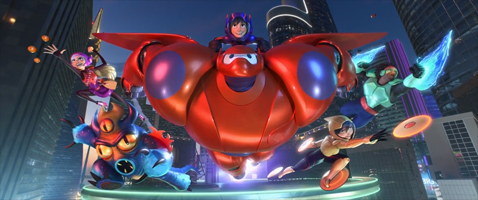
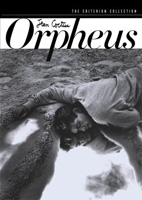 2011:
2011: 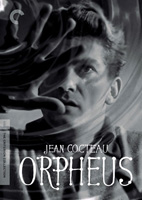
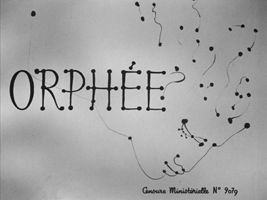
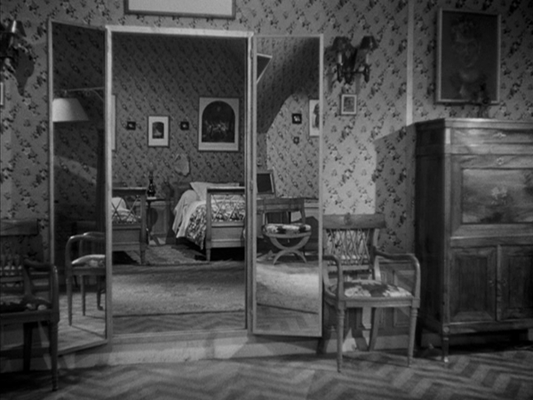


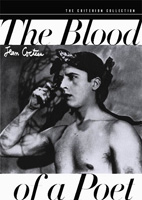 (out of print 4/2010)
(out of print 4/2010)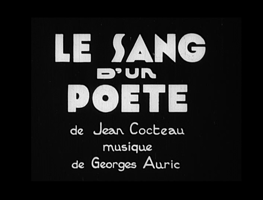
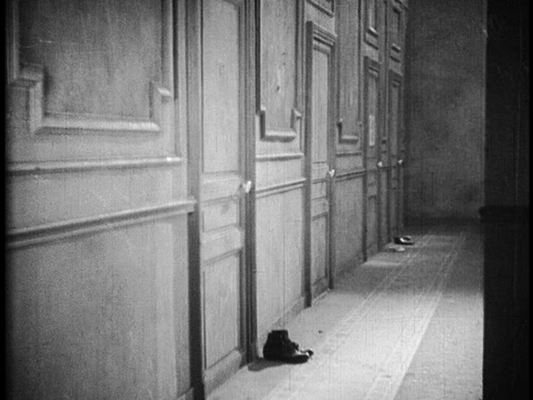
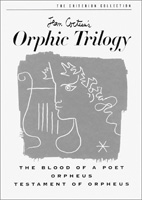 (out of print 4/2010)
(out of print 4/2010)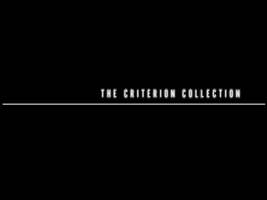
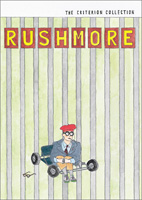 2011:
2011: 